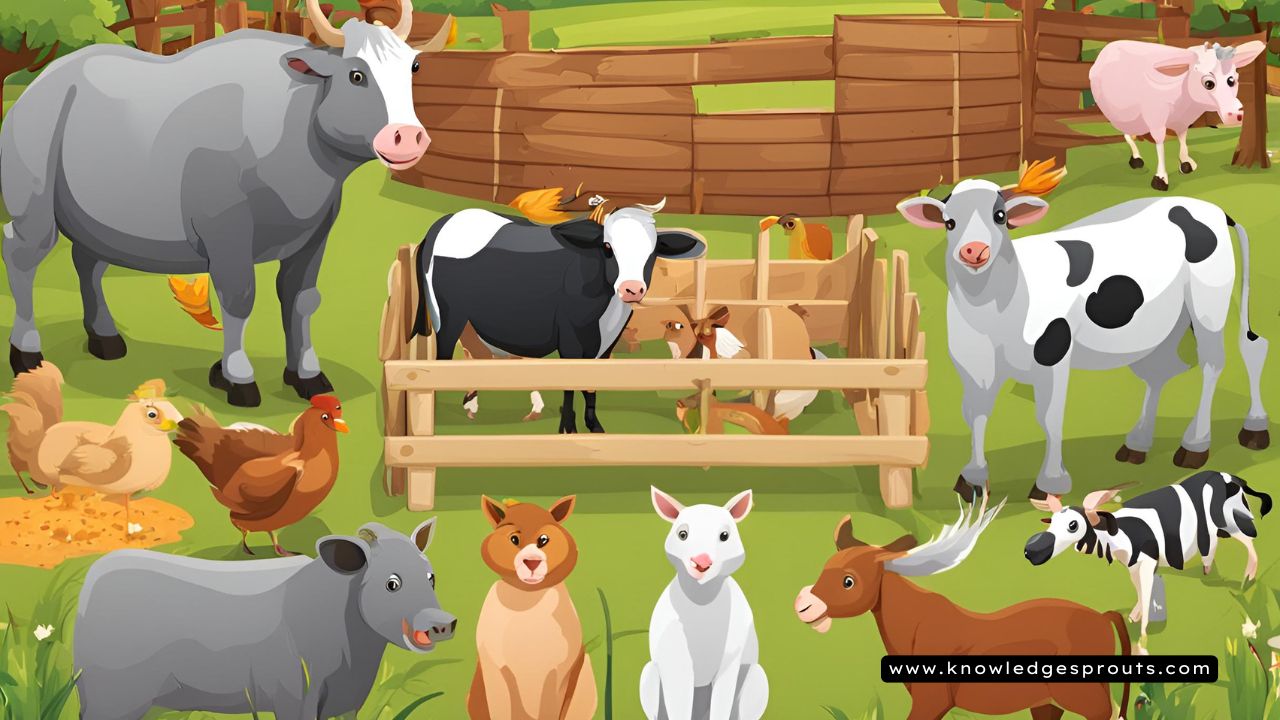Book Appointment Now

Metaphors for Animals: Discovering Animal Imagery in Language
Metaphors for animals have long been a cornerstone of creative writing, injecting vivid imagery and depth into our language. These powerful linguistic tools allow us to describe human characteristics, situations, and emotions through the lens of the animal kingdom, creating memorable and evocative comparisons that resonate with readers.
33 Metaphors for Animals
Animal metaphors are figurative expressions that compare human traits, behaviors, or situations to those of animals. They’re essential in writing because they:
- Add color and vibrancy to descriptions
- Make abstract concepts more concrete and relatable
- Evoke strong emotions and mental images
- Enhance memorability of ideas or characters
- Provide cultural and universal references
Now, let’s dive into a menagerie of animal metaphors, exploring their meanings and applications in various contexts.
Feline Metaphors
1. Cat on a Hot Tin Roof
Meaning: This metaphor describes someone who is extremely nervous, agitated, or uncomfortable in a situation.
Examples:
- During his first public speech, Tom was like a cat on a hot tin roof, fidgeting and sweating profusely.
- The suspect acted like a cat on a hot tin roof during the interrogation, unable to sit still or maintain eye contact.
2. Cat That Got the Cream
Meaning: This metaphor refers to someone who looks extremely pleased or satisfied with themselves, often due to a recent success or achievement.
Examples:
- After winning the lottery, Sarah walked around the office looking like the cat that got the cream.
- When he received his promotion, John couldn’t hide his smugness – he was the cat that got the cream.
Canine Metaphors
3. Dog with a Bone
Meaning: This metaphor describes someone who pursues something with relentless determination, refusing to give up or let go.
Examples:
- Once Lisa sets her mind on a goal, she’s like a dog with a bone – nothing can distract her.
- The investigative journalist was like a dog with a bone, tirelessly pursuing leads until he uncovered the truth.
4. Barking Up the Wrong Tree
Meaning: This metaphor suggests that someone is pursuing a mistaken or misguided course of action, often based on faulty assumptions.
Examples:
- If you think I’m the one who spread those rumors, you’re barking up the wrong tree – I would never do that.
- The detectives realized they were barking up the wrong tree when their prime suspect provided an ironclad alibi.
Avian Metaphors
5. Eagle-Eyed
Meaning: This metaphor describes someone with exceptionally keen eyesight or unusually sharp perception and attention to detail.
Examples:
- The eagle-eyed proofreader caught even the tiniest typos in the manuscript.
- Nothing escapes my grandmother’s eagle-eyed gaze – she always notices when I’ve rearranged my room.
6. Chicken Out
Meaning: This metaphor means to lose courage at the last moment and decide not to do something due to fear or cowardice.
Examples:
- I was going to ask her out, but I chickened out at the last second.
- Don’t chicken out now – you’ve practiced for weeks for this performance!
Aquatic Metaphors
7. Fish Out of Water
Meaning: This metaphor describes someone who feels awkward or uncomfortable in an unfamiliar situation or environment.
Examples:
- As the only non-techie at the coding conference, Sarah felt like a fish out of water.
- Moving from a small town to a big city left John feeling like a fish out of water for months.
8. Shark in a Suit
Meaning: This metaphor refers to an aggressive, ruthless, or predatory person, especially in a business or professional context.
Examples:
- Be careful negotiating with him – he’s a shark in a suit and will try to take advantage of you.
- The new CEO was known as a shark in a suit, always looking for ways to maximize profits at any cost.
Rodent Metaphors
9. Rat Race
Meaning: This metaphor describes the exhausting, competitive struggle for success in work or life, often in an urban setting.
Examples:
- After years in the corporate rat race, Tom decided to quit his job and start a small business in the countryside.
- Many young professionals find themselves caught up in the rat race, constantly chasing promotions and higher salaries.
10. Squirrel Away
Meaning: This metaphor means to save or hide something, especially money or food, for future use.
Examples:
- My grandmother always advised me to squirrel away some money each month for emergencies.
- The resourceful campers squirreled away extra food in case their trip lasted longer than planned.

Insect Metaphors
11. Busy as a Bee
Meaning: This metaphor describes someone who is extremely industrious, always occupied with activity or work.
Examples:
- During exam season, the library was filled with students as busy as bees, frantically studying for their tests.
- My mother is always as busy as a bee, juggling her job, household chores, and volunteer work.
12. Social Butterfly
Meaning: This metaphor refers to a person who is socially active and outgoing, moving from one social group to another with ease.
Examples:
- At parties, my sister is a true social butterfly, effortlessly mingling with everyone in the room.
- The new employee quickly became known as the office social butterfly, organizing events and bringing people together.
Reptile Metaphors
13. Crocodile Tears
Meaning: This metaphor describes insincere displays of sorrow or remorse, fake crying or sadness.
Examples:
- The politician shed crocodile tears while apologizing for the scandal, but no one believed his sincerity.
- Don’t fall for her crocodile tears – she’s just trying to manipulate you into changing your mind.
14. Snake in the Grass
Meaning: This metaphor refers to a treacherous or deceitful person who pretends to be your friend while secretly plotting against you.
Examples:
- I thought he was my ally, but he turned out to be a snake in the grass, undermining me at every opportunity.
- Be careful who you trust in this industry – there are plenty of snakes in the grass waiting to take advantage of newcomers.
Primate Metaphors
15. Monkey on Your Back
Meaning: This metaphor describes a persistent problem or burden that’s difficult to shake off, often referring to addiction or debt.
Examples:
- His gambling addiction became a monkey on his back, affecting every aspect of his life.
- The student loan debt was like a monkey on her back, influencing every financial decision she made.
16. Gorilla in the Room
Meaning: This metaphor (a variation of “elephant in the room”) refers to an obvious problem or difficult situation that people are reluctant to discuss or acknowledge.
Examples:
- The company’s outdated technology was the gorilla in the room during the board meeting, but no one wanted to address it.
- We need to talk about the gorilla in the room – your drinking is affecting your work performance.
Bovine Metaphors
17. Cash Cow
Meaning: This metaphor refers to a product, service, or business that consistently generates a steady and significant income with little effort or investment.
Examples:
- The company’s popular smartphone app has become their cash cow, funding all their other projects.
- For years, the blockbuster franchise was the studio’s cash cow, reliably bringing in millions at the box office.
18. Bull in a China Shop
Meaning: This metaphor describes a person who is clumsy, careless, or insensitive in a delicate situation, causing damage or upset.
Examples:
- His lack of diplomacy made him like a bull in a china shop during sensitive negotiations.
- Please don’t send Tom to handle the client meeting – he’s like a bull in a china shop when it comes to customer relations.
Equine Metaphors
19. Dark Horse
Meaning: This metaphor refers to a person or thing that emerges to prominence in a situation, especially in a competition, when relatively unknown or unexpected.
Examples:
- The independent candidate was the dark horse of the election, surprising everyone with her strong showing at the polls.
- Despite being relatively unknown, the small tech startup emerged as the dark horse in the industry, revolutionizing mobile payments.
20. Straight from the Horse’s Mouth
Meaning: This metaphor means information coming directly from the original or authoritative source.
Examples:
- I heard about the company’s expansion plans straight from the horse’s mouth – the CEO told me himself.
- Don’t rely on rumors; if you want accurate information, get it straight from the horse’s mouth by asking the professor directly.

Marine Life Metaphors
21. Big Fish in a Small Pond
Meaning: This metaphor describes a person who is important or influential in a small or limited sphere but may not be as significant in a larger context.
Examples:
- As the top student in his small high school, Tom was a big fish in a small pond, but he struggled to stand out at the prestigious university.
- She was a big fish in a small pond at her local theater, but moving to Broadway showed her how much competition she faced.
22. Jellyfish
Meaning: This metaphor refers to a person who lacks a strong character or backbone, often changing their opinions to please others or avoid conflict.
Examples:
- The new manager is such a jellyfish, never standing up to upper management or defending his team.
- Don’t be a jellyfish in your relationships – it’s important to have your own opinions and boundaries.
Predator Metaphors
23. Wolf in Sheep’s Clothing
Meaning: This metaphor describes someone or something dangerous, harmful, or villainous disguised as something harmless or benevolent.
Examples:
- The seemingly friendly salesman turned out to be a wolf in sheep’s clothing, scamming elderly customers out of their savings.
- Be careful of wolves in sheep’s clothing on dating apps – not everyone is who they claim to be online.
24. Lion’s Share
Meaning: This metaphor refers to the largest or best part of something, especially when it comes to dividing profits or resources.
Examples:
- As the lead investor, she claimed the lion’s share of the profits when the startup was sold.
- Despite being a team effort, the CEO took the lion’s share of the credit for the company’s success.
Bird Metaphors
25. Albatross Around One’s Neck
Meaning: This metaphor describes a persistent burden or problem that interferes with success or progress.
Examples:
- His criminal record became an albatross around his neck, making it difficult to find employment.
- The failed product launch was an albatross around the company’s neck, affecting investor confidence for years.
26. Lame Duck
Meaning: This metaphor refers to an official or politician whose power is diminished because their term is about to end or they’ve lost an election but haven’t yet left office.
Examples:
- As a lame duck president, he struggled to push through any significant legislation in his final months.
- The CEO became a lame duck after announcing her retirement, with employees already looking to her successor for direction.
Livestock Metaphors
27. Sacrificial Lamb
Meaning: This metaphor describes someone who is sacrificed or punished for the mistakes or misdeeds of others, often to protect more powerful individuals.
Examples:
- The junior employee was made the sacrificial lamb, taking the blame for the project’s failure to protect senior management.
- In political scandals, it’s often the aide who becomes the sacrificial lamb, resigning to shield their superior from consequences.
28. Black Sheep
Meaning: This metaphor refers to a member of a group or family who is considered disreputable or a source of embarrassment.
Examples:
- Despite his family’s academic achievements, Tom was seen as the black sheep for pursuing a career in art.
- Every office has its black sheep – the one employee who never quite fits in with the company culture.
Wild Animal Metaphors
29. Bear Hug
Meaning: This metaphor describes an excessively tight or enthusiastic embrace, or in business, an offer to buy out a company at a price well above market value.
Examples:
- When I returned home after a year abroad, my mom greeted me with a bear hug that nearly squeezed the breath out of me.
- The struggling company received a bear hug offer from its largest competitor, making it difficult for shareholders to refuse.
30. Lone Wolf
Meaning: This metaphor describes a person who prefers to act alone, avoiding working with others or being part of a team.
Examples:
- Despite the collaborative nature of the project, John remained a lone wolf, rarely seeking input from his colleagues.
- In a office full of extroverts, Sarah was known as the lone wolf, preferring to work independently whenever possible.
Exotic Animal Metaphors
31. White Elephant
Meaning: This metaphor refers to a possession or project that is troublesome or costly to maintain, often more trouble than it’s worth.
Examples:
- The massive yacht became a white elephant for the lottery winner, costing a fortune in maintenance and dock fees.
- The half-finished stadium stands as a white elephant, a constant reminder of the city’s failed Olympic bid.
32. Elephant in the Room
Meaning: This metaphor describes an obvious problem or difficult situation that people are reluctant to discuss or acknowledge.
Examples:
- The couple’s mounting debt was the elephant in the room during every conversation about their future.
- Climate change has become the elephant in the room in many political discussions, with some leaders still reluctant to address it directly.
Mythical Animal Metaphors
33. Unicorn
Meaning: In business, this metaphor refers to a startup company valued at over $1 billion. In dating, it describes an idealized, perfect partner who may not exist.
Examples:
- The tech startup quickly achieved unicorn status, attracting attention from major investors worldwide.
- She kept searching for her unicorn – a partner who was both successful and emotionally available – but began to wonder if such a person existed.
Conclusion
Metaphors for animals offer a rich tapestry of language, allowing us to express ourselves with creativity and precision. By understanding their meanings and experimenting with different examples, you can elevate your writing to new heights. So, let your imagination run wild and unleash your inner zoologist to create captivating metaphors that leave a lasting impression.
Now, it’s your turn! Try creating your own animal metaphors. Remember, the more unique and imaginative, the better!



